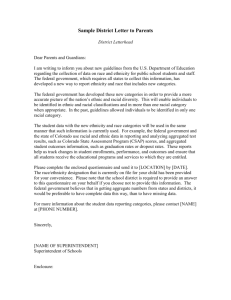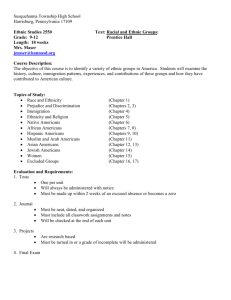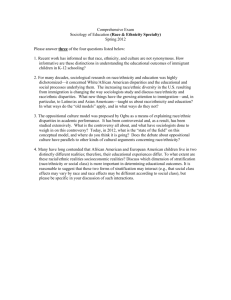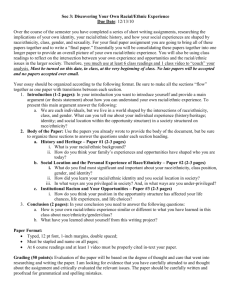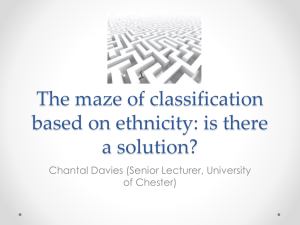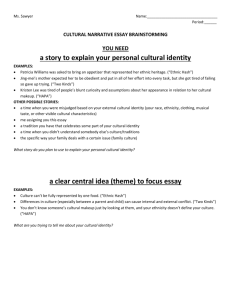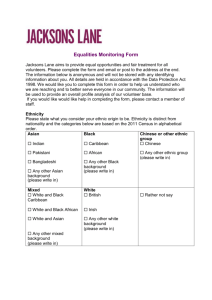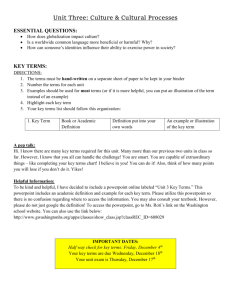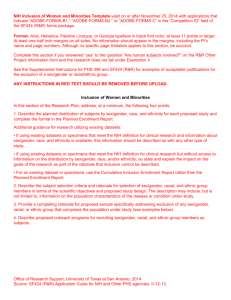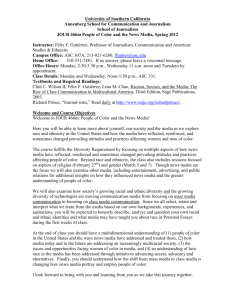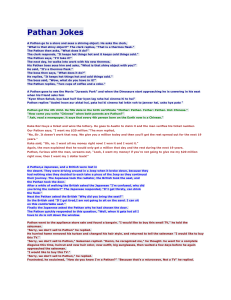Argument, Question, Connection and Implication. Sarah
advertisement
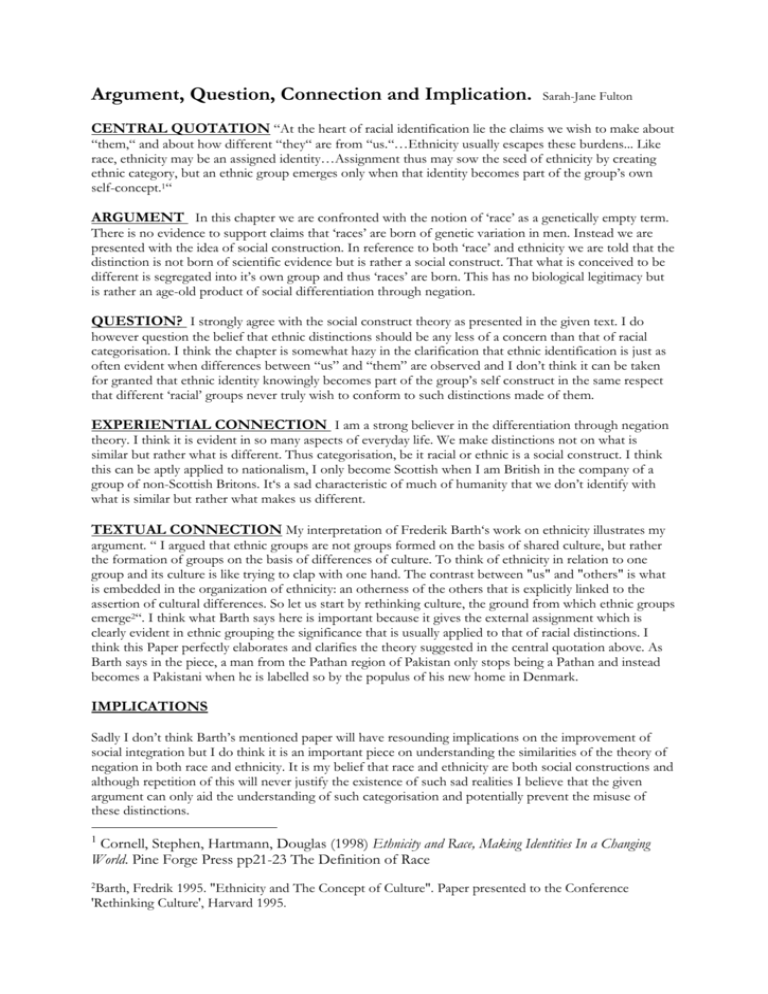
Argument, Question, Connection and Implication. Sarah-Jane Fulton CENTRAL QUOTATION “At the heart of racial identification lie the claims we wish to make about “them,“ and about how different “they“ are from “us.“…Ethnicity usually escapes these burdens... Like race, ethnicity may be an assigned identity…Assignment thus may sow the seed of ethnicity by creating ethnic category, but an ethnic group emerges only when that identity becomes part of the group’s own self-concept.1“ ARGUMENT In this chapter we are confronted with the notion of ‘race’ as a genetically empty term. There is no evidence to support claims that ‘races’ are born of genetic variation in men. Instead we are presented with the idea of social construction. In reference to both ‘race’ and ethnicity we are told that the distinction is not born of scientific evidence but is rather a social construct. That what is conceived to be different is segregated into it’s own group and thus ‘races’ are born. This has no biological legitimacy but is rather an age-old product of social differentiation through negation. QUESTION? I strongly agree with the social construct theory as presented in the given text. I do however question the belief that ethnic distinctions should be any less of a concern than that of racial categorisation. I think the chapter is somewhat hazy in the clarification that ethnic identification is just as often evident when differences between “us” and “them” are observed and I don’t think it can be taken for granted that ethnic identity knowingly becomes part of the group’s self construct in the same respect that different ‘racial’ groups never truly wish to conform to such distinctions made of them. EXPERIENTIAL CONNECTION I am a strong believer in the differentiation through negation theory. I think it is evident in so many aspects of everyday life. We make distinctions not on what is similar but rather what is different. Thus categorisation, be it racial or ethnic is a social construct. I think this can be aptly applied to nationalism, I only become Scottish when I am British in the company of a group of non-Scottish Britons. It‘s a sad characteristic of much of humanity that we don’t identify with what is similar but rather what makes us different. TEXTUAL CONNECTION My interpretation of Frederik Barth‘s work on ethnicity illustrates my argument. “ I argued that ethnic groups are not groups formed on the basis of shared culture, but rather the formation of groups on the basis of differences of culture. To think of ethnicity in relation to one group and its culture is like trying to clap with one hand. The contrast between "us" and "others" is what is embedded in the organization of ethnicity: an otherness of the others that is explicitly linked to the assertion of cultural differences. So let us start by rethinking culture, the ground from which ethnic groups emerge2“. I think what Barth says here is important because it gives the external assignment which is clearly evident in ethnic grouping the significance that is usually applied to that of racial distinctions. I think this Paper perfectly elaborates and clarifies the theory suggested in the central quotation above. As Barth says in the piece, a man from the Pathan region of Pakistan only stops being a Pathan and instead becomes a Pakistani when he is labelled so by the populus of his new home in Denmark. IMPLICATIONS Sadly I don’t think Barth’s mentioned paper will have resounding implications on the improvement of social integration but I do think it is an important piece on understanding the similarities of the theory of negation in both race and ethnicity. It is my belief that race and ethnicity are both social constructions and although repetition of this will never justify the existence of such sad realities I believe that the given argument can only aid the understanding of such categorisation and potentially prevent the misuse of these distinctions. Cornell, Stephen, Hartmann, Douglas (1998) Ethnicity and Race, Making Identities In a Changing World. Pine Forge Press pp21-23 The Definition of Race 1 Barth, Fredrik 1995. "Ethnicity and The Concept of Culture". Paper presented to the Conference 'Rethinking Culture', Harvard 1995. 2
